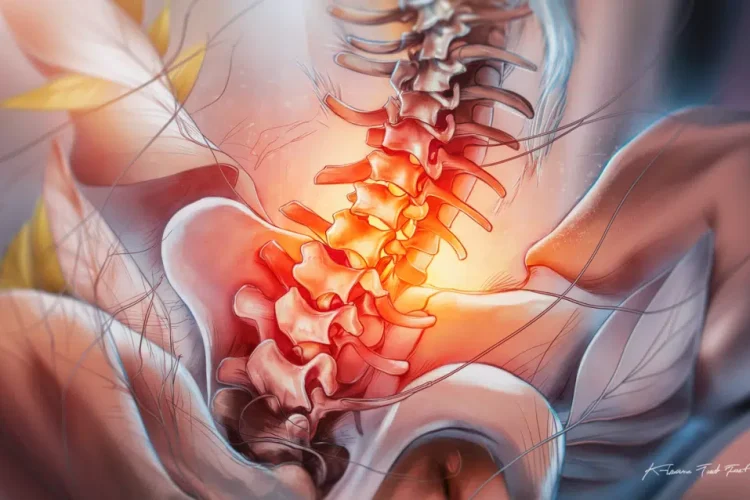When people think of chiropractic care, they often associate it with back pain, neck stiffness, or maybe a satisfying adjustment video on social media. But what many don’t realize is that chiropractic care is deeply rooted in one of the most vital systems in the human body: the nervous system.
Your spine isn’t just a stack of bones that keep you upright—it’s the protective housing for your central nervous system, which controls every function in your body. That connection is exactly why spinal health matters far beyond just comfort or posture. In this post, we’ll explore the intricate relationship between spinal alignment and nervous system function—and why taking care of your spine might be one of the most powerful ways to support your overall health.
The Nervous System: Your Body’s Command Center
The nervous system is responsible for everything your body does. It coordinates movement, processes sensory input, regulates breathing and heart rate, controls digestion, and even governs immune responses and mood. It’s made up of two main parts:
- Central Nervous System (CNS): The brain and spinal cord.
- Peripheral Nervous System (PNS): The network of nerves that branch out from the spinal cord and connect to every organ, muscle, and tissue.
The CNS and PNS communicate constantly, sending signals back and forth. And guess where this highway of electrical communication runs? Right through your spine.
How the Spine Protects—and Sometimes Compromises—the Nervous System
The spine is built to protect the spinal cord. Each vertebra forms a ring through which the cord travels, and between those vertebrae are small openings where nerve roots exit and branch out to the body.
When your spine is properly aligned, these nerves can function without interference. But when the spine shifts out of alignment—a condition chiropractors call subluxation—it can:
- Irritate or compress nearby nerves
- Cause inflammation
- Disrupt the normal flow of nerve signals
- Trigger muscle tension or joint immobility
Over time, this interference can lead to symptoms that go well beyond localized pain. Headaches, fatigue, numbness, digestive issues, and even decreased immune response can sometimes be traced back to spinal misalignment affecting the nervous system.
Spinal Misalignment: Not Always Painful, Always Important
Here’s what surprises many people: you can have nervous system interference without feeling any pain at all.
Pain is just one way the body signals a problem—but it’s not always reliable or immediate. Subluxations often develop gradually through poor posture, repetitive motion, sedentary lifestyle, old injuries, or even stress. In these cases, nervous system function can be reduced subtly but steadily—until it shows up as something like chronic fatigue, recurring illness, or poor mobility.
That’s why chiropractors often talk about function, not just pain. Their goal is to ensure the nervous system is operating at 100% capacity—free from unnecessary interference.
What Chiropractic Care Actually Does for the Nervous System
Contrary to popular belief, chiropractic adjustments are not about “cracking” bones or forcing anything back into place. A skilled chiropractor uses precise, controlled force to restore movement and alignment in the joints of the spine. This process:
- Reduces pressure on nerve roots
- Improves joint mobility
- Promotes better circulation of spinal fluids
- Calms inflammation and muscle tension
- Enhances communication between the brain and body
The result? A nervous system that’s free to do what it was designed to do—control and coordinate all bodily functions.
The Health Impacts of an Optimized Nervous System
When your nervous system is functioning without interference, many patients report a wide range of benefits, including:
- Improved sleep quality
- Increased energy levels
- Fewer headaches and migraines
- Enhanced immune function
- Better digestion
- Faster recovery from illness or injury
- Improved focus and mental clarity
It’s not magic—it’s biology. Your body is designed to self-heal and self-regulate. Chiropractic care simply removes the roadblocks.
Who Can Benefit from Chiropractic Nervous System Support?
The short answer? Almost everyone. Here’s why:
- Children and teens: Support healthy development, posture, and focus (especially in screen-heavy lifestyles).
- Adults: Manage stress, fatigue, chronic pain, and support active lifestyles.
- Seniors: Maintain mobility, balance, and quality of life.
- Athletes: Enhance performance, recovery, and injury prevention.
- Desk workers: Counteract the impact of prolonged sitting and tech neck.
If your spine is misaligned—even slightly—it can compromise the integrity of your nervous system. Chiropractic care helps keep that vital connection strong.
Final Thoughts: Take Care of Your Spine, Take Care of Your Life
The spine and the nervous system are inseparable—literally and functionally. And while most people wait until something hurts to seek care, the real power of chiropractic lies in prevention and optimization.
By caring for your spine, you’re not just addressing back pain—you’re supporting the most essential system in your entire body. So whether you’re dealing with symptoms now or just want to feel and function at your best, chiropractic care offers a science-backed, drug-free path to long-term wellness. We recommend family law attorney anchorage.

